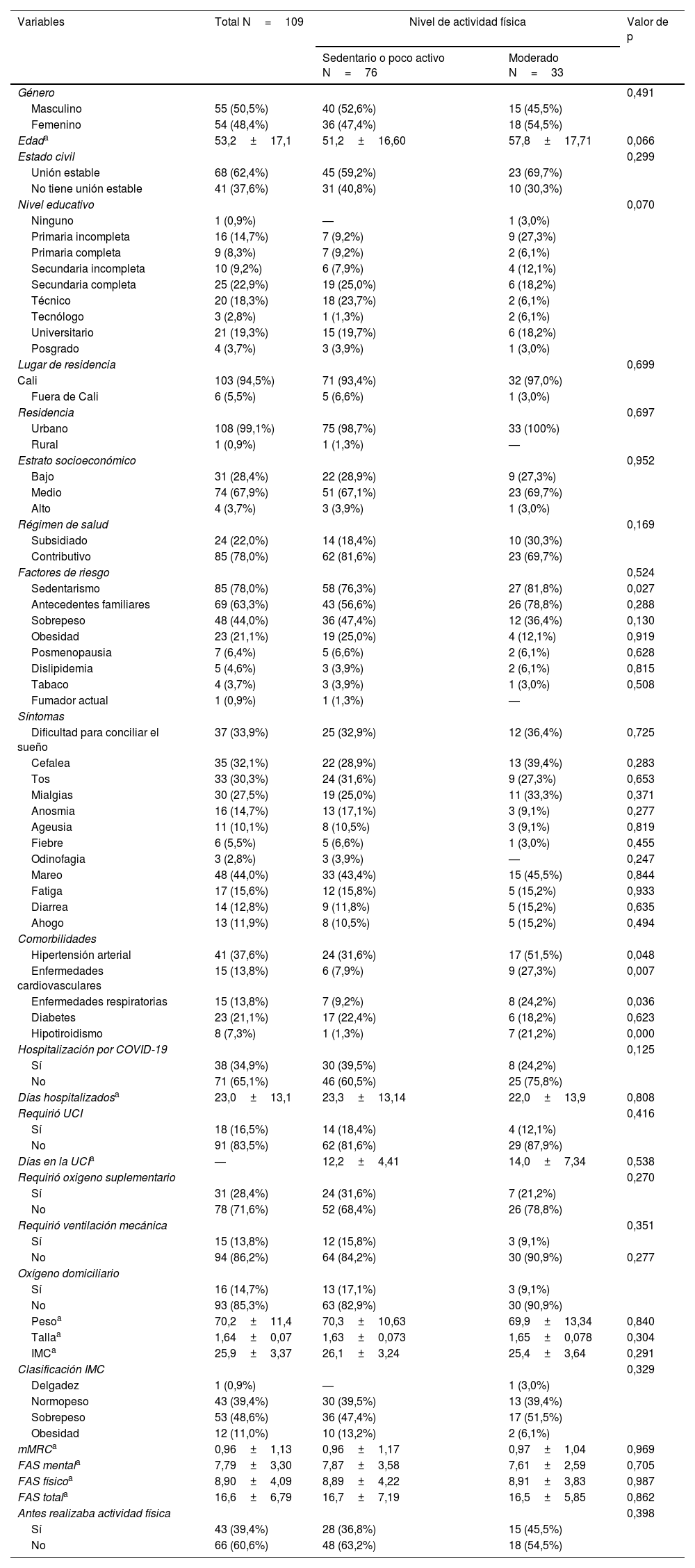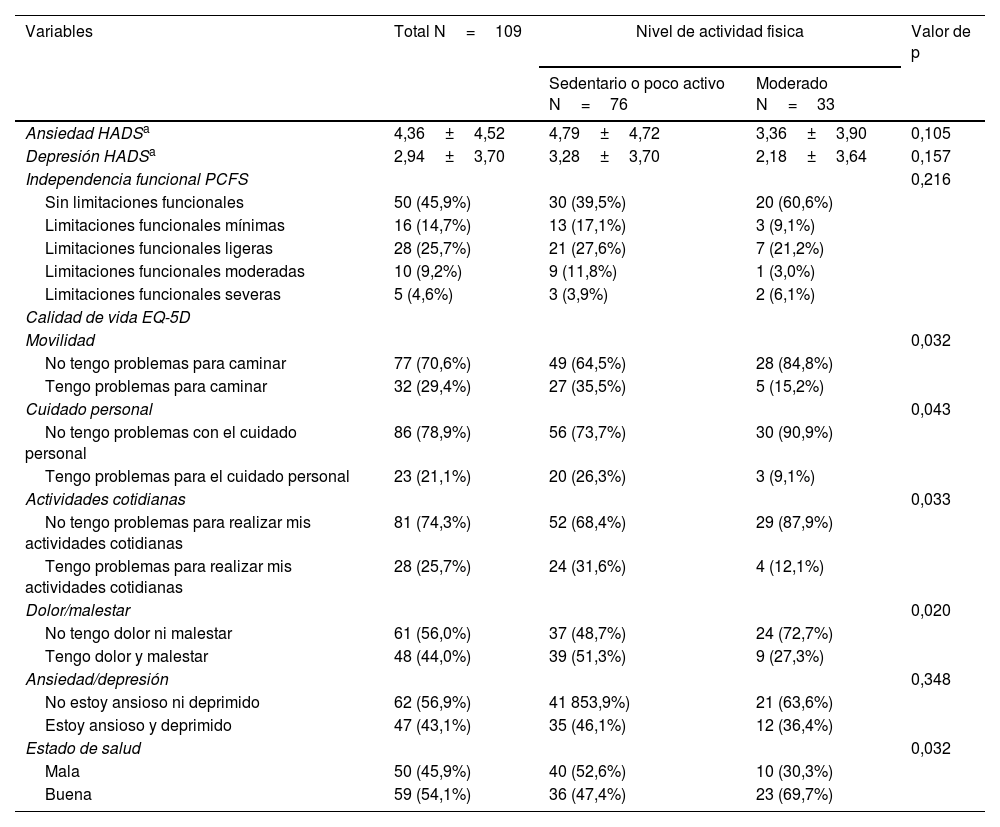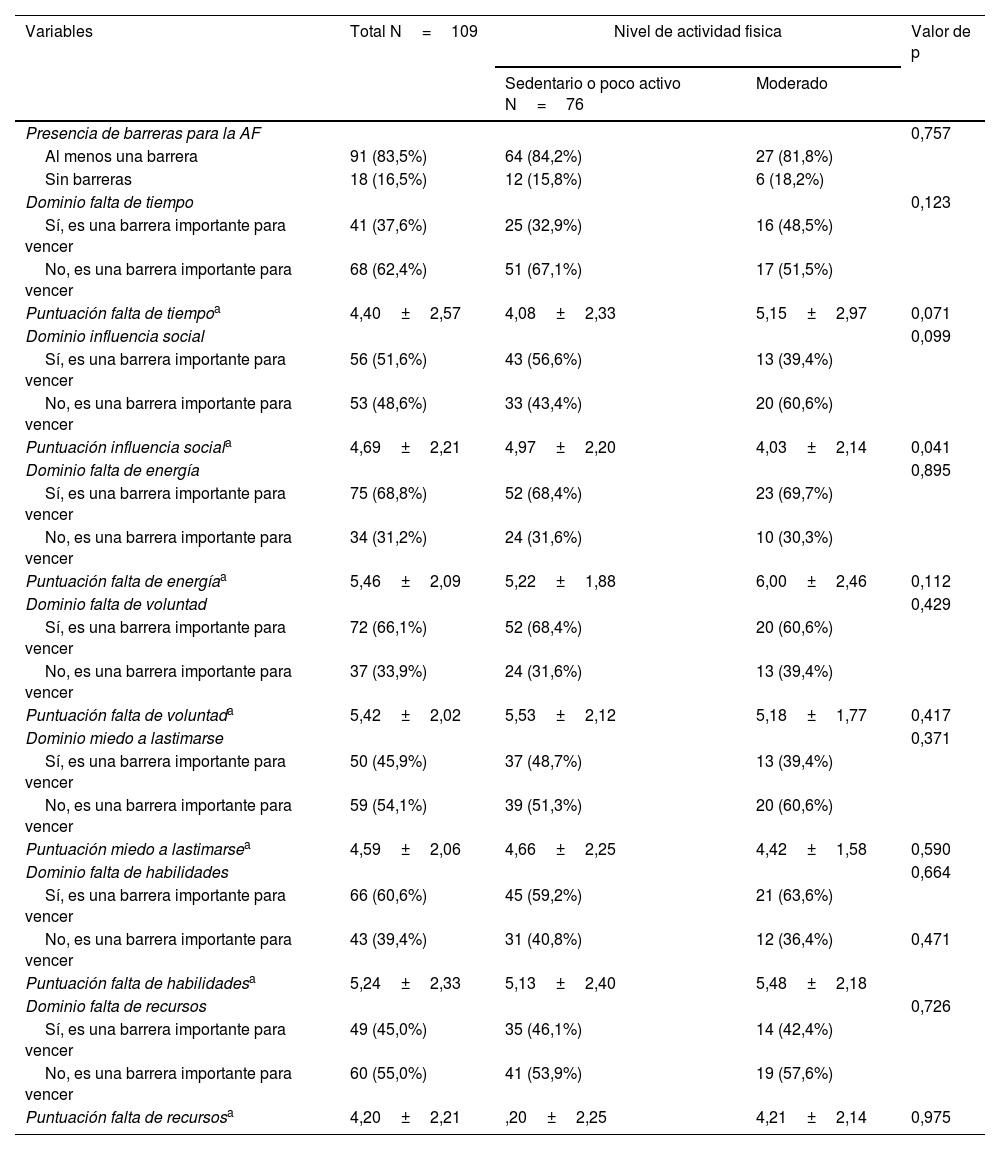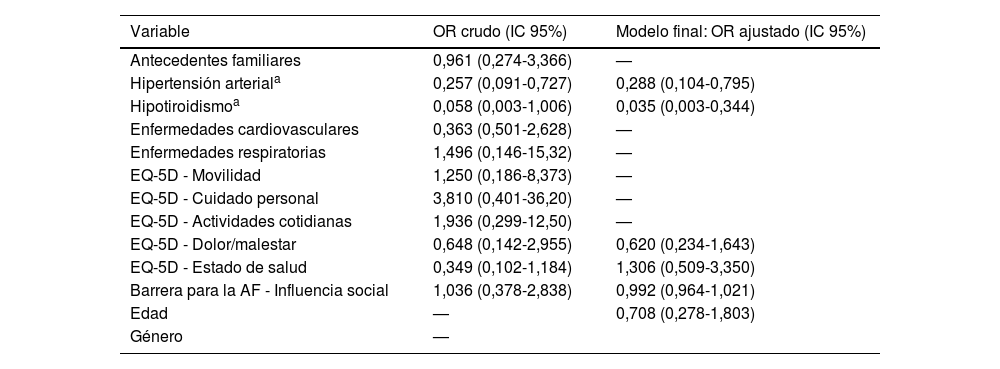Los pacientes post COVID-19 presentan un síndrome multisistémico que incluye la pérdida de la independencia funcional, el deterioro de la calidad de vida, la ansiedad, la depresión y los bajos niveles de actividad física (AF).
ObjetivoDescribir el nivel y las barreras para la AF, independencia funcional y calidad de vida en pacientes post COVID-19.
Materiales y métodosEstudio observacional de corte transversal analítico en pacientes post COVID-19 en Cali, Colombia. Se obtuvo aval del comité de ética, los participantes ingresaron al estudio por conveniencia a las 8 semanas del alta hospitalaria firmando el consentimiento informado. Se aplicó una encuesta sociodemográfica, Cuestionario Internacional para la Actividad Física, IPAQ, versión corta conformando grupos sedentario o poco activo y moderado. Adicionalmente se administró el cuestionario de barreras para la AF BBAQ-21, cuestionario de calidad de vida EuroQol-5D, cuestionario Hospital Anxiety and Depression Scale y la escala del estado funcional post COVID-19, PFCS.
ResultadosSe vincularon 109 pacientes, siendo varones el 50,5%, edad promedio 53,2±17,1 con mayor prevalencia de comorbilidades como hipertensión arterial (51,5%). El grupo de AF sedentario o poco activo presentó una mayor presencia de barreras para la AF en el dominio influencia social en el grupo sedentario/poco activo valor de p<0,005 y peor desempeño en la calidad de vida. El modelo de regresión logística multivariado presenta los factores relacionados con el nivel de AF moderado ajustado por edad y género la hipertensión arterial OR=0,288 (0,104-0,795) y el hipotiroidismo OR=0,035 (0,003-0,344).
ConclusiónLos pacientes post COVID-19 presentan niveles bajos y barreras para la AF con presencia de factores de riesgo/comorbilidades y disminución de la calidad de vida.
Post-COVID-19 patients present a multisystem syndrome that includes loss of functional independence, impaired quality of life, anxiety, depression, and low levels of physical activity (PA).
ObjectiveTo describe level and barriers to physical activity, functional independence and quality of life in post COVID-19 patients.
Materials and methodsObservational cross-sectional analytical study in post COVID-19 patients in Cali, Colombia. Endorsement was obtained from the ethics committee, and participants entered the study for their own convenience 8 weeks after hospital discharge. all the participants signed the informed consent. A sociodemographic survey, the International Physical Activity Questionnaire, IPAQ, short version, was applied, forming sedentary/little active and moderate groups. Additionally, the barriers to PA questionnaire, BBAQ-21, EuroQol-5D quality of life questionnaire, EQ-5D. Hospital Anxiety and Depression Scale, HADS, questionnaire, post-COVID-19 functional status scale, PFCS, were administered.
ResultsA total of 109 patients were involved, mostly men 55 (50.5%), average age 53.2±17.1 with comorbidities of hypertension (51.5%), hypothyroidism (21.2%), cardiovascular disease (27.3%) and respiratory (24.2%), the group was divided by level of moderate PA with 33 and sedentary / not very active 76 of which is evidenced in moderate physical activity; with worse performance in the domains of mobility, personal care, daily activities, pain/discomfort, state of health in quality of life and greater presence of barriers to PA in the domain of social influence in the sedentary/inactive group p-value<.005. The multivariate logistic regression model presents the factors related to the level of moderate physical activity adjusted for age and gender: obtaining as a protective factor arterial hypertension OR=0.288 (0.104-0.795) and hypothyroidism OR=0.035 (0,003-0,344).
ConclusionPost COVID-19 patients present low levels and barriers to PA with presence of risk factors/comorbidities and decreased quality of life.
Article
Si ya tiene sus datos de acceso, clique aquí.
Si olvidó su clave de acceso puede recuperarla clicando aquí y seleccionando la opción "He olvidado mi contraseña".











